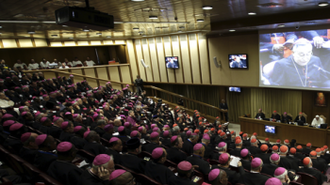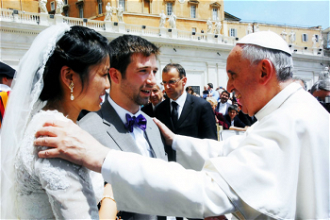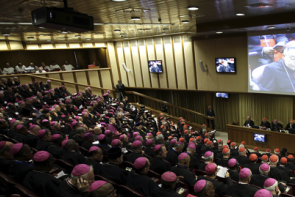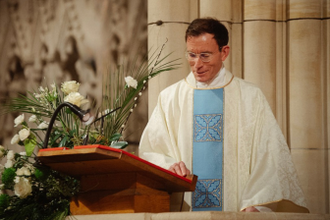The Family Synod: It's far from over

Three weeks of intense work have ended. It has been an incredible experience to be at and live through a Synod of Bishops. No significant changes to Church discipline or doctrine are on the cards. There was no agreement on the hot-button issue of admitting the divorced and civilly re-married to Communion. As the Synod ends there are two reactions: for some, relief that Church teaching has been affirmed; for others, disappointment - especially for those in difficult circumstances who had hoped for some change.
But, it would be an oversight to think that it's business as usual. There have been significant changes. Right from the first session of the Synod, there was an openness and freedom that has not always been enjoyed. Prompted by Pope Francis, delegates spoke their minds freely on once-taboo issues. This immediately revealed divergent views amongst them that they did not resolve. Interestingly, in his closing talk at the Synod, Pope Francis said that the bishops had not always disagreed in a well-meaning ways.
Another significant change was the role African Bishops played. In the past, the voice of the African Church seemed mute. This year the African bishops made sure their pastoral challenges were not only on the agenda but also discussed. There were lengthy discussions about polygamy, poverty, and war. The African bishops downplayed issues like the admission to Communion of the divorced and civilly re-married. Regarding a welcoming and less condemnatory language towards homosexuals they said this was not an issue that was urgent in Africa as a whole. Many of them spoke out strongly against pressure, lobbying and "ideological colonisation" from aid agencies and foreign governments, who set conditions for aid - for example making contraception widely available.
There was also robust debate on decentralisation. Burdened with many diverse issues, which in a number of instances pertain to particular contexts, some delegates asked that cultural/contextual specific issues be dealt with by local episcopal conferences. Opinion was split. One senior cardinal cautioned against this saying "the Catholic Church is universal not continental." Pope Francis called for healthy decentralisation. He believes that certain issues can be dealt with by local episcopal conferences.
Language was discussed frequently too. There was a strong call for language that was "more sensitive and welcoming." There was also a call for language that communicates with the people today. This is significant. Phrases like "intrinsically disordered" or "love the sinner but hate the sin" and "the indissolubility of marriage" made many delegates uneasy. These, they said, were not sensitive or pastorally helpful. Others said that they did not convey Catholic teaching clearly enough.
Pope Francis will now decide on the way forward. He has the Synod report in his hands. Last Sunday at the closing Mass he warned the bishops not to have "schedules" for God's mercy. He cautioned against an attitude in which everyone must "respect our rhythms". What Pope Francis does next will indicate what the fruits of the Synod are and where the Church is heading. It's far from over.
Follow Fr Russell Pollitt on Twitter @ rpollittsj


















